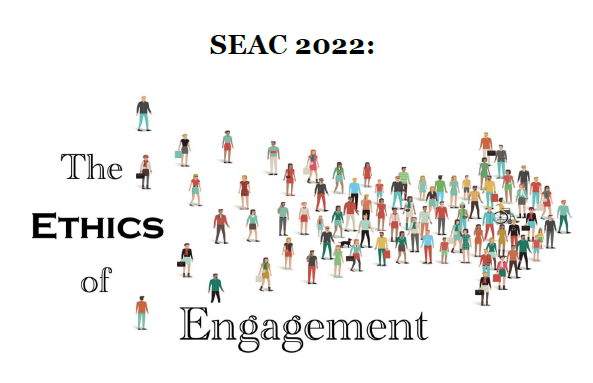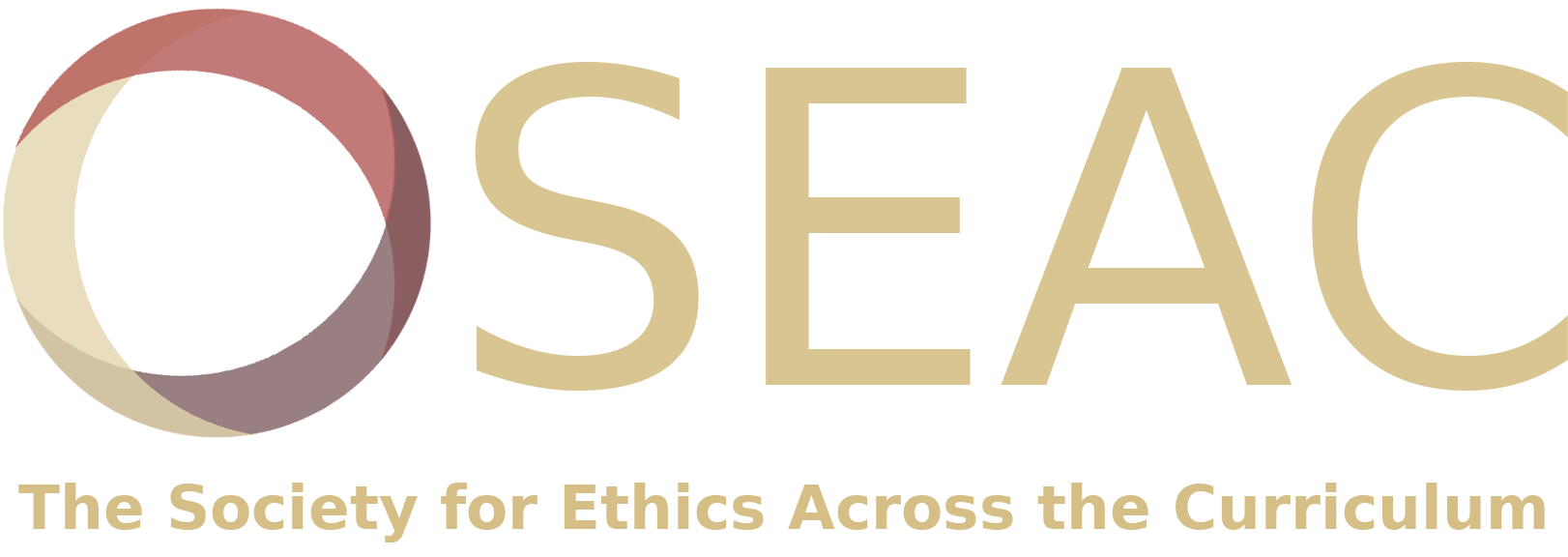
Concurrent Session 6B
Location
B: Room 200 (Bryant Hall, second floor)
Start Date
8-10-2022 8:30 AM
End Date
8-10-2022 10:15 AM
Description
- Adult Life: Sexual Responsibility and the Pursuit of Happiness / Jill Drouillard, Mississippi University for Women
My presentation will discuss how I taught John Russon’s Adult Life: Aging, Responsibility, and the Pursuit of Happiness alongside Amia Srinivasan’s The Right to Sex: Feminism in the Twenty-First Century in order to foster a discussion centered on sexual responsibility. In Russon’s “Character and Reality,” he identifies two virtues that are required of adulthood, sōphrosunē and andreia, noting that proper exhibition of such virtues entails an acknowledgement of intersubjectivity and co-habitation (sugchōrein). In “Aging,” Russon examines the different biological stages of life and their accompanying levels of responsibility. He asserts that adolescence is a “growing time of social responsibility,” noting an aspect of this social development is the “emerging experience of romantic and erotic bonds, and adolescence is importantly experienced as the opening up of sexuality.” Russon doesn’t explore this “opening up of sexuality” more fully, but I have requested that my students do so. We read “Talking to My Students About Porn” to discuss the ubiquity of internet porn and how it affects the erotic bonds that students are able to have. We also read “The Right to Sex” in order to address issues related to entitlement (i.e., incels) and consent. Students were asked to think about how to display the aforementioned virtues amongst the ubiquity of internet porn and how to properly consider the intersubjective dimension of life in their own pursuit of happiness. - Kierkegaard’s Model for Ethical Communication / Sam Peters, Faulkner University (Best Graduate Student Paper)
Moral education is generally tasked with teaching information about ethics. Lecturing on ethics, however, likely has little effect on morality. There seems to be a meaningful difference between what students care about and their ethical aptitude, the former of which has more import on one’s lifestyle. Thus, more than seeing moral education as the communicating of information, it needs to be seen as a reforming of what students care about. In light of this distinction, how should the teacher communicate ethics so as to change the cares of students? As information? Or as something else? In answering this question, this paper consults Soren Kierkegaard, whose life work was concerned with how the individual becomes ethical, and it specifically analyzes his 1847 lecture notes titled, “The Dialectic of Ethical and Ethical-Religious Communication.” My thesis in this essay is that Kierkegaard’s model of ethical communication should be considered as an ethical pedagogical, as it, being aimed at reforming the sentiments and mode of existence of the student, situates the teacher as a distant midwife and communicates “the ethical” in the aesthetics of literature. Until we understand how to communicate the ethical, moral education will render itself ineffective. - The Ancient Virtue of Hospitality / Laura Arcila Villa, Colorado State University
Hospitality is concerned with the welcoming of the stranger. This practical disposition has been central to the ethics of all major religions of the world since antiquity and is conspicuously present in their foundational texts. In spite of this widespread prominence, hospitality has received very little attention in philosophy, and most surprisingly in ethics, save for Ricoeur and Levinas, whose work is influenced by their religious outlook, and Derrida’s ruminations about “radical hospitality” in relation to language and translation. In the face of a world disrupted by environmental disasters and alarming numbers of political and climate refugees, the silence of philosophy concerning the welcoming disposition of hospitality is inexcusable. In this paper, I bring attention to the virtue of interpersonal hospitality and discuss its philosophical treatment in the recent work of Richard Kearney, and to some extent, in the writings of Ricoeur, Levinas, Derrida, and Habermas, upon which Kearney’s work builds. I attempt to make sense of the disposition to welcome the stranger in non-religious terms. The analysis presented aims to avoid understanding the moral force of interpersonal hospitality in terms that require adherence to particular religious outlooks, although I discuss the significance of the question whether hospitality is truly possible outside such perspectives. A concluding section explores briefly how the virtue of hospitality could be discussed and cultivated in college ethics curricula using the framework proposed.
Session Chair: Jason Robert, Arizona State University
Relational Format
conference proceeding
Recommended Citation
Drouillard, Jill; Peters, Sam; Villa, Laura Arcila; and Robert, Jason, "Concurrent Session 6B" (2022). Society for Ethics Across the Curriculum Conference. 39.
https://egrove.olemiss.edu/seac/2022/schedule/39
COinS
Oct 8th, 8:30 AM
Oct 8th, 10:15 AM
Concurrent Session 6B
B: Room 200 (Bryant Hall, second floor)
- Adult Life: Sexual Responsibility and the Pursuit of Happiness / Jill Drouillard, Mississippi University for Women
My presentation will discuss how I taught John Russon’s Adult Life: Aging, Responsibility, and the Pursuit of Happiness alongside Amia Srinivasan’s The Right to Sex: Feminism in the Twenty-First Century in order to foster a discussion centered on sexual responsibility. In Russon’s “Character and Reality,” he identifies two virtues that are required of adulthood, sōphrosunē and andreia, noting that proper exhibition of such virtues entails an acknowledgement of intersubjectivity and co-habitation (sugchōrein). In “Aging,” Russon examines the different biological stages of life and their accompanying levels of responsibility. He asserts that adolescence is a “growing time of social responsibility,” noting an aspect of this social development is the “emerging experience of romantic and erotic bonds, and adolescence is importantly experienced as the opening up of sexuality.” Russon doesn’t explore this “opening up of sexuality” more fully, but I have requested that my students do so. We read “Talking to My Students About Porn” to discuss the ubiquity of internet porn and how it affects the erotic bonds that students are able to have. We also read “The Right to Sex” in order to address issues related to entitlement (i.e., incels) and consent. Students were asked to think about how to display the aforementioned virtues amongst the ubiquity of internet porn and how to properly consider the intersubjective dimension of life in their own pursuit of happiness. - Kierkegaard’s Model for Ethical Communication / Sam Peters, Faulkner University (Best Graduate Student Paper)
Moral education is generally tasked with teaching information about ethics. Lecturing on ethics, however, likely has little effect on morality. There seems to be a meaningful difference between what students care about and their ethical aptitude, the former of which has more import on one’s lifestyle. Thus, more than seeing moral education as the communicating of information, it needs to be seen as a reforming of what students care about. In light of this distinction, how should the teacher communicate ethics so as to change the cares of students? As information? Or as something else? In answering this question, this paper consults Soren Kierkegaard, whose life work was concerned with how the individual becomes ethical, and it specifically analyzes his 1847 lecture notes titled, “The Dialectic of Ethical and Ethical-Religious Communication.” My thesis in this essay is that Kierkegaard’s model of ethical communication should be considered as an ethical pedagogical, as it, being aimed at reforming the sentiments and mode of existence of the student, situates the teacher as a distant midwife and communicates “the ethical” in the aesthetics of literature. Until we understand how to communicate the ethical, moral education will render itself ineffective. - The Ancient Virtue of Hospitality / Laura Arcila Villa, Colorado State University
Hospitality is concerned with the welcoming of the stranger. This practical disposition has been central to the ethics of all major religions of the world since antiquity and is conspicuously present in their foundational texts. In spite of this widespread prominence, hospitality has received very little attention in philosophy, and most surprisingly in ethics, save for Ricoeur and Levinas, whose work is influenced by their religious outlook, and Derrida’s ruminations about “radical hospitality” in relation to language and translation. In the face of a world disrupted by environmental disasters and alarming numbers of political and climate refugees, the silence of philosophy concerning the welcoming disposition of hospitality is inexcusable. In this paper, I bring attention to the virtue of interpersonal hospitality and discuss its philosophical treatment in the recent work of Richard Kearney, and to some extent, in the writings of Ricoeur, Levinas, Derrida, and Habermas, upon which Kearney’s work builds. I attempt to make sense of the disposition to welcome the stranger in non-religious terms. The analysis presented aims to avoid understanding the moral force of interpersonal hospitality in terms that require adherence to particular religious outlooks, although I discuss the significance of the question whether hospitality is truly possible outside such perspectives. A concluding section explores briefly how the virtue of hospitality could be discussed and cultivated in college ethics curricula using the framework proposed.
Session Chair: Jason Robert, Arizona State University


